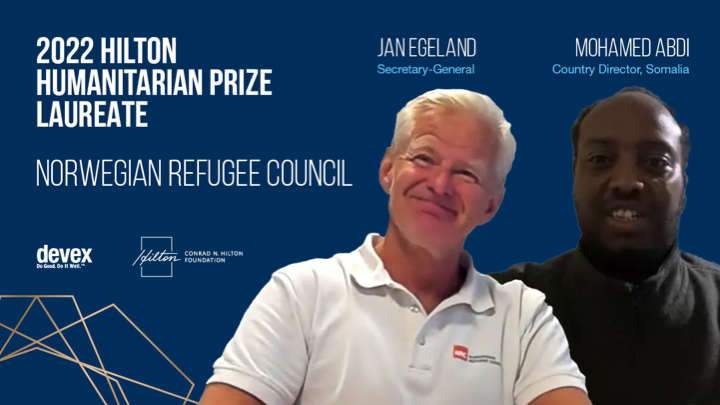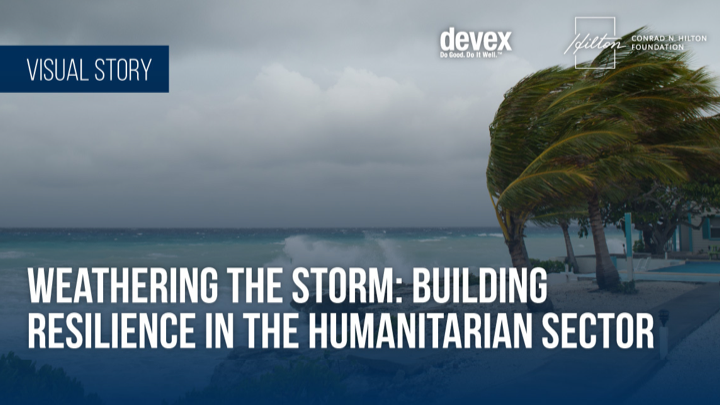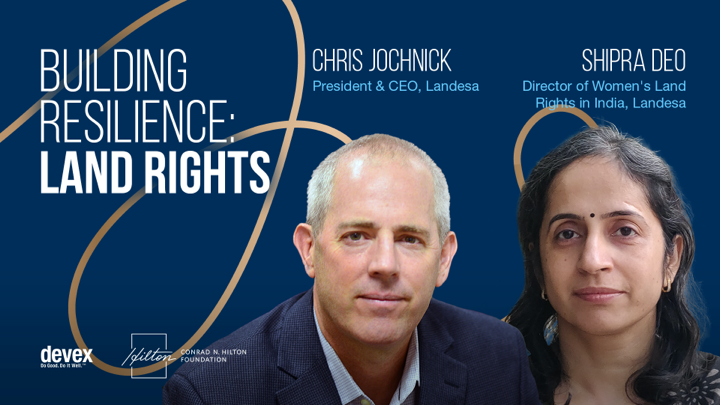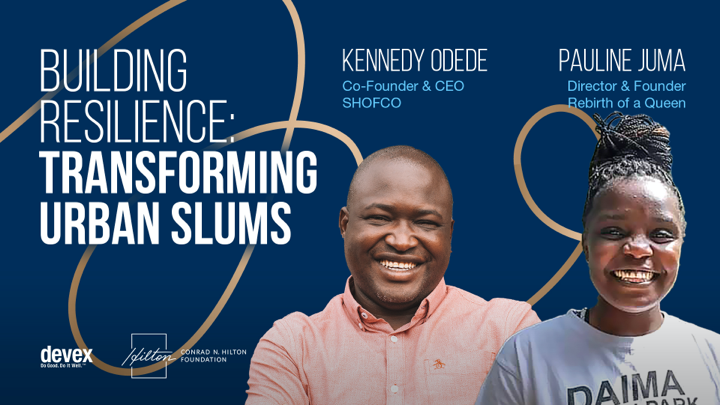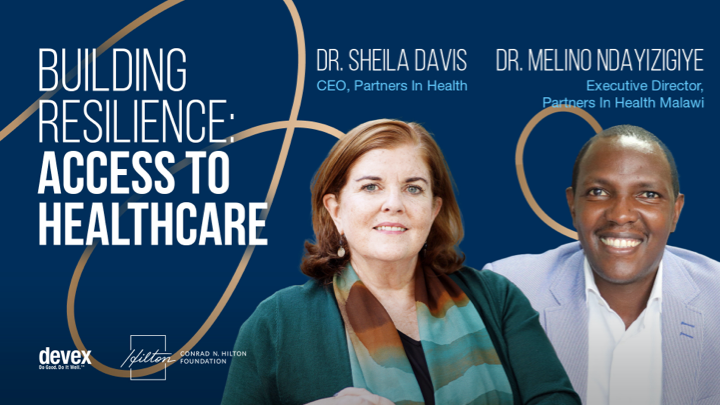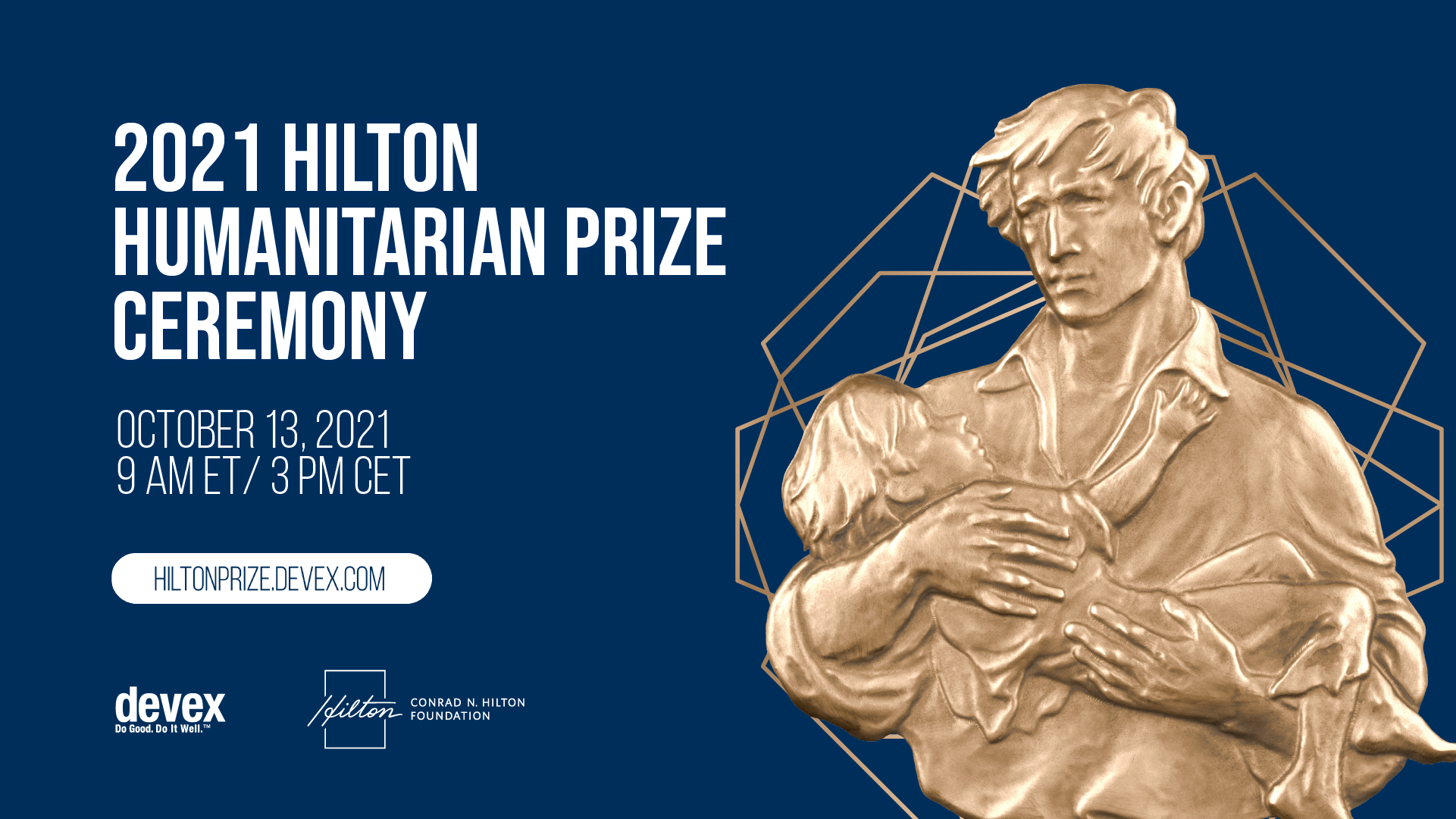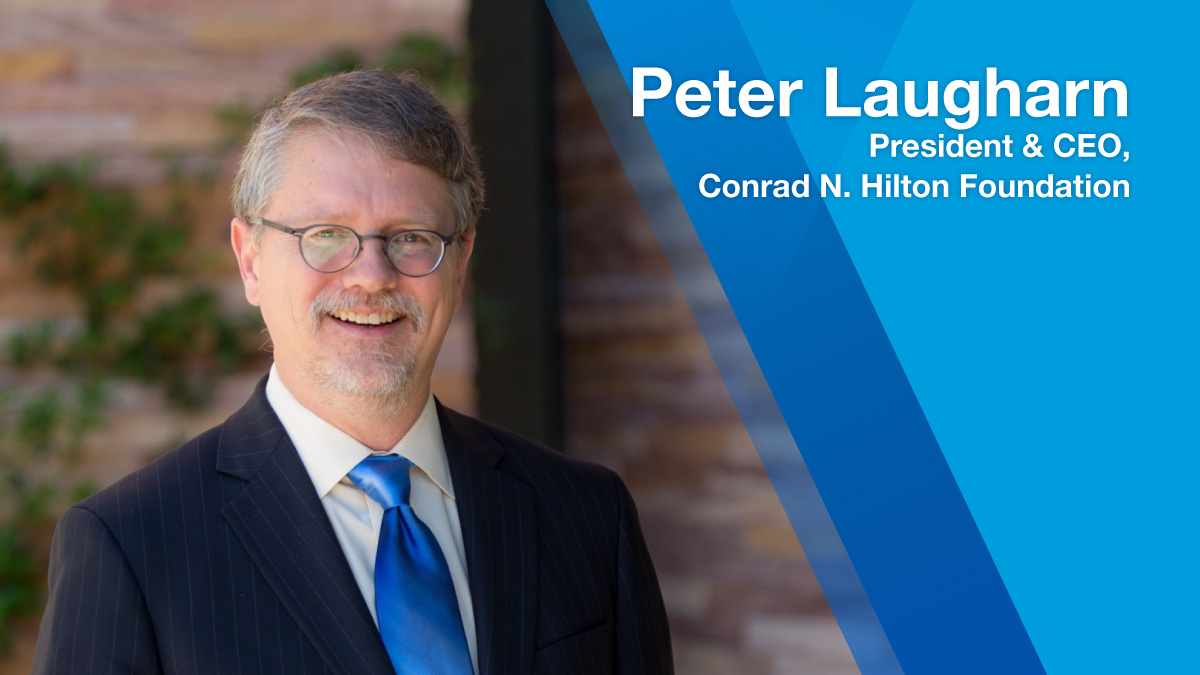Hilton Humanitarian Prize Laureate Series
Record forced displacement; growing inequality; catastrophic natural disasters exacerbated by climate change; the fallout from a once-in-a generation global pandemic; and protracted armed conflicts raging on multiple fronts — with this context, we'll ask whether the humanitarian system that exists today is fit for purpose? This series brings together thought leaders from around the world to discuss these pressing humanitarian issues, and to look at the ways we must build our future together, as well as the unique paradigm shift required to make the shifting and sharing of power to communities a reality.
Read More ↓Building Resilience
Future of Humanitarian Action
The Hilton Foundation and Devex hosted a virtual online conversation series under the theme The Future of Humanitarian Action: The Power of Communities.
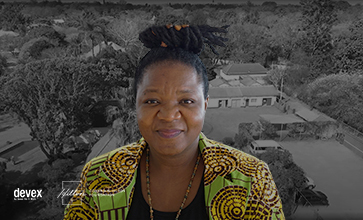
Speakers
Dr. Shungu Gwarinda, Director of Programmes of the Graça Machel Trust
Fadzi Whande, Senior Diversity & Inclusion Adviser, Executive Direction and Management, Office of the United Nations High Commissioner for Human Rights
Angeline Murimirwa, Executive Director - Africa, CAMFED
Moderator: Kate Warren, Executive Vice President, Devex
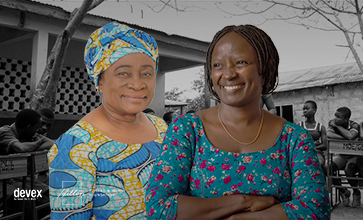
Speakers
Jo Bourne, Chief Technical Officer, Global Partnership for Education
Diana Ayala, Lead, CEAAL Youth Group in Honduras, and GPE Youth Leader
Sarah Brown, Chair, Theirworld
Barbara Chilangwa, Executive Advisor – Government Relations, CAMFED
Lydia Wilbard, National Director, CAMFED Tanzania
Moderator: Rumbi Chakamba, Associate Editor, Devex
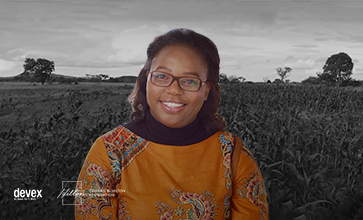
Speakers
Fiona Mavhinga, Executive Advisor, CAMFED Association
Komal Narayan, Climate Activist and Volunteer, Alliance for Future Generations
Christina Kwauk, Nonresident Fellow - Global Economy and Development, Center for Universal Education, Brookings
Beth Roberts, Director, Center for Women’s Land Rights, Landesa
The Future of Humanitarian Action – Prize Laureate Series
More on The Hilton Humanitarian Prize
Partners
Devex
Devex is the media platform for the global development community. A social enterprise, we connect and inform over one million development, health, humanitarian, and sustainability professionals through news, business intelligence, and funding & career opportunities so you can do more good for more people.
Conrad N. Hilton Foundation
International hotelier Conrad N. Hilton established the grantmaking foundation that bears his name in 1944 to help people living in poverty and experiencing disadvantage worldwide. Today, the work continues, concentrating on efforts to improve early childhood development outcomes, support older youth as they transition from foster care, ensure opportunity youth can access career pathways, prevent homelessness, identify solutions to safe water access, help integrate refugees into society and lift the work of Catholic sisters. Additionally, following selection by an independent, international jury, the Foundation annually awards the $2.5 million Conrad N. Hilton Humanitarian Prize to an organization doing extraordinary work to reduce human suffering. The Foundation is one of the world’s largest, with assets recently growing to approximately $7.5 billion. It has awarded grants to date totaling more than $2 billion, $207 million worldwide in 2020.



